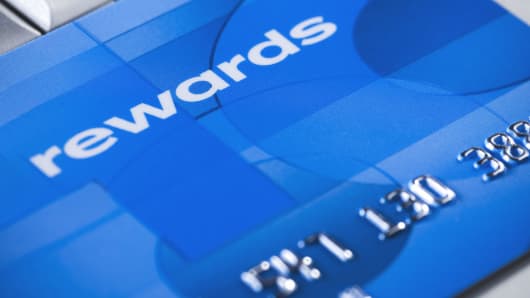It's a strange contradiction.
Credit cards that offer rewards are more popular than ever. And yet, many people who have these cards don't really know how they work. They aren't sure how to maximize the points, miles or cash rebates they can get by using them, according to the new J.D. Power 2013 U.S. Credit Card Satisfaction Survey.
The study found that just 59 percent of the customers with a rewards card feel they "completely understand" how to earn rewards, down from 66 percent in 2012. Even more surprising, 33 percent of these cardholders say they are unaware of the benefits associated with their rewards card.
"While most customers change cards for a better rewards program, they often don't fully understand the rewards offered with their current card," said Jim Miller, senior director of banking services at J.D. Power.
How can this be?
"The reward structures are getting more complex as issuers try to differentiate their products and it seems to be confusing their customers a little bit more," Miller explained. "There needs to be a simplification of how you earn the rewards and just better communication, so customers understand how to earn and redeem them."
(Read more: Student debt relief businesses draw scrutiny)
When comparing cards, it's easy to focus on the big rewards highlighted in the ads and ignore the rules that spell out how you earn them and how you can lose them. Here's what to look for:
- Spending tiers: You may need to spend a certain amount within a specific time period to get that highly touted big bonus. For example, the Capital One Venture Rewards Card offers new customers a 10,000 mile bonus, but only if they spend $1,000 on purchases within the first three months of getting the card.
- Registration may be required: Rewards cards often offer bonuses on certain purchases, such as gas or groceries, each quarter. You may need to sign up for these bonuses. Forget to opt in and you'll miss out.
- Limits: With most rewards cards, you can only claim so many points each calendar year.
- Penalties: Miss a payment and you may lose that month's reward and there may be a fee to reinstate them.
- Terms can change: You need to check the monthly bill inserts for changes to the program.
Keep in mind: Rewards cards typically have a higher interest rate than general purpose credit cards, so they're best for people who pay off their balance in full each month. They may also have an annual fee.


